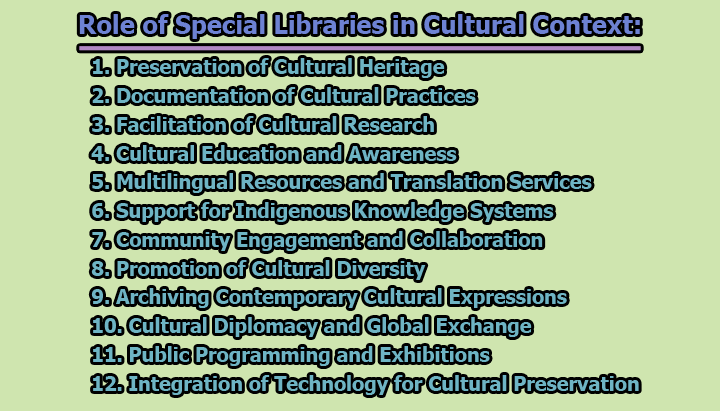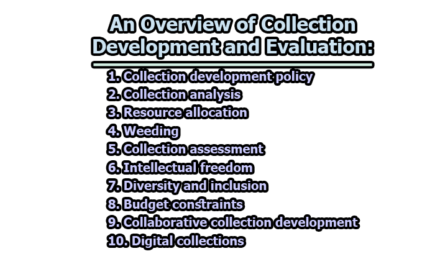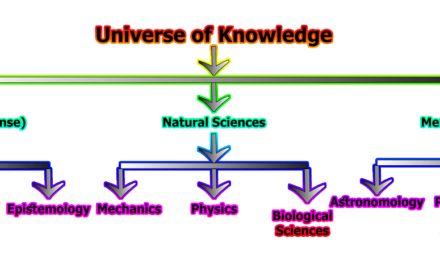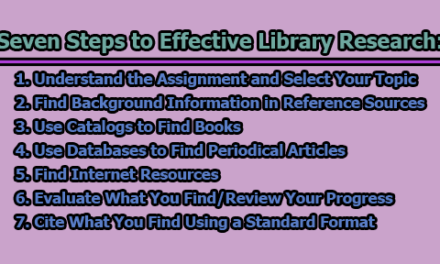Special libraries are distinct from public and academic libraries because they are unique information hubs designed to meet the specific needs of a particular organization, industry, or community. These libraries are customized to cater to a specific field, offering carefully selected collections and resources that closely align with the interests and requirements of their users. Special libraries can be found in various settings, including corporations, government agencies, non-profit organizations, and research institutions. They gather materials related to the core activities of the organization, such as industry-specific publications, technical reports, proprietary databases, and research documents. The main goal of a special library is to support the mission and objectives of the organization it serves. It achieves this by providing timely and relevant information that facilitates decision-making, research, and innovation within that specific context. Librarians in special libraries play a crucial role in managing information, disseminating knowledge, and supporting research. They tailor their services to meet the unique needs of the organization and its stakeholders. In the rest of this article, we will explore special library: types, objectives, services of special library, and role of special libraries in cultural context.
Definitions of Special Library:
A special library, according to the traditional librarian, is a specialized information center designed to serve the unique needs of a particular organization, industry, or group. These libraries focus on collecting, organizing, and disseminating information tailored to the specific requirements and objectives of their parent institution.
From the viewpoint of an information scientist, a special library is a curated repository of knowledge and resources, strategically managed to support the decision-making processes within a specific domain. These libraries leverage information science principles to ensure efficient access, retrieval, and utilization of information for the advancement of their specialized field.
For a corporate professional, a special library is a vital resource hub within an organization, providing targeted information to enhance productivity, innovation, and strategic planning. It serves as a knowledge powerhouse, offering insights, research, and data that directly contribute to the company’s success and competitive edge.
An academic scholar sees a special library as a niche collection of scholarly materials dedicated to advancing research and education in a specialized area. These libraries play a crucial role in supporting academic pursuits, offering in-depth resources that cater to the specific curriculum and research interests of a particular discipline.
From a technology enthusiast’s standpoint, a special library is a dynamic information ecosystem leveraging cutting-edge technologies. It incorporates digital platforms, data analytics, and artificial intelligence to efficiently manage, update, and disseminate specialized information, staying abreast of the latest developments in the field.
For a community outreach advocate, a special library is a valuable resource center that fosters community engagement and empowerment. It serves as a platform for sharing knowledge, hosting events, and collaborating with local stakeholders to address the unique informational needs of the community it serves.
From the perspective of an archivist, a special library is a carefully preserved repository of documents, records, and artifacts, ensuring the long-term preservation of valuable information. These libraries play a critical role in safeguarding the historical and cultural heritage of a specific domain or organization.
Types of Special Libraries:
Special libraries can be categorized further depending on factors like the founding organization’s nature and broad subject specialization. Here are a few examples:
1. Legal Resource Centers: These special libraries are established within legal institutions, law firms, or organizations dealing with legal matters. They house legal texts, case law, statutes, and other legal resources essential for legal professionals and researchers.
2. Corporate Libraries: Special libraries within corporate settings cater to the information needs of employees within a specific industry or business. They may focus on areas such as finance, marketing, human resources, or industry-specific research, providing valuable insights for decision-making.
3. Museum Libraries: Museums often have special libraries that support the research and curation of their collections. These libraries house materials related to art, history, archaeology, and other disciplines relevant to the museum’s focus.
4. Media and Broadcasting Libraries: Libraries in media organizations, television stations, or radio stations focus on collecting information related to journalism, broadcasting, and media studies. They may include archives of news articles, media production resources, and materials on communication studies.
5. Nonprofit Organization Libraries: Special libraries associated with nonprofit organizations cater to the unique information needs of these entities. They may focus on topics related to social justice, philanthropy, advocacy, and nonprofit management.
6. Environmental Research Libraries: Libraries within environmental research institutions or organizations concentrate on resources related to environmental science, ecology, climate change, and sustainability. They support researchers and professionals working in environmental fields.
7. Architectural and Design Libraries: Special libraries in architectural firms or design organizations house resources related to architecture, urban planning, and design. They provide access to architectural drawings, design principles, and materials for professionals in the field.
8. Libraries in Religious Institutions: Religious organizations often have special libraries containing religious texts, theological studies, and materials relevant to the spiritual and educational needs of the institution’s members.
9. International Organizations Libraries: Libraries within international organizations, such as the United Nations or World Health Organization, focus on collecting information related to global issues, international relations, and diplomacy. They support the work of professionals engaged in international affairs.
Objectives of Special Library:
The objectives of a special library are designed to align with the unique needs and functions of the organization or community it serves. Here are objectives that commonly associated with special libraries:
1. Support Organizational Goals: Special libraries aim to directly contribute to the achievement of organizational objectives. By providing targeted and specialized information resources, these libraries empower decision-makers, researchers, and employees to enhance the efficiency and effectiveness of their work within the organization.
2. Facilitate Research and Development: Special libraries play a crucial role in supporting research and development activities within an organization or industry. They aim to build comprehensive collections of resources relevant to the specific field, fostering innovation, problem-solving, and the generation of new knowledge.
3. Enhance Decision-Making: Special libraries strive to improve the decision-making processes by offering timely, accurate, and relevant information. Whether in a corporate, government, or research setting, these libraries enable stakeholders to make informed decisions, thereby contributing to the overall success and advancement of the organization.
4. Provide Specialized Information Services: The primary objective of a special library is to deliver specialized information services tailored to the unique needs of its users. This includes reference assistance, literature searches, document delivery, and other services that facilitate easy access to pertinent information within the library’s domain.
5. Build and Preserve Specialized Collections: Special libraries focus on building and maintaining collections that reflect the specific interests and requirements of their user community. This involves acquiring and curating materials such as books, journals, databases, and multimedia resources that are essential for research, learning, and decision-making.
6. Support Professional Development: Special libraries aim to contribute to the professional development of their users by providing access to current and relevant information in their respective fields. This supports ongoing learning, skill development, and the staying abreast of industry trends and best practices.
7. Foster Collaboration and Networking: Special libraries often act as hubs for collaboration and networking within a particular industry or community. By organizing events, seminars, and workshops, these libraries create opportunities for professionals and researchers to connect, share knowledge, and engage in collaborative initiatives.
8. Promote Information Literacy: Special libraries contribute to information literacy by educating users on how to effectively locate, evaluate, and use information resources. This includes providing training sessions, workshops, and educational materials to enhance the information literacy skills of the library’s user community.
9. Serve as a Resource Center: Special libraries function as centralized resource centers for their designated subject areas. They aim to be comprehensive repositories of information, ensuring that users can access a wide range of materials relevant to their field of study or work.
10. Adapt to Technological Advances: Special libraries have an objective to stay abreast of technological developments and leverage them to enhance information access and services. This involves adopting digital platforms, implementing information management systems, and utilizing emerging technologies to improve the overall library experience.
11. Contribute to Knowledge Management: Special libraries play a role in knowledge management within an organization by collecting, organizing, and disseminating knowledge resources. They help capture and share institutional knowledge, ensuring that valuable information is preserved and utilized effectively.
12. Meet Regulatory and Compliance Needs: In certain sectors, special libraries aim to support regulatory and compliance requirements by providing access to legal, industry-specific, and regulatory information. This helps organizations adhere to standards and guidelines relevant to their operations.
13. Provide Outreach and Community Engagement: Special libraries may have an objective to engage with the broader community, sharing knowledge and resources beyond the immediate user base. This can involve outreach programs, partnerships with educational institutions, and participation in community events.
Services of Special Library:
Here is a brief explanation of various services offered by special libraries:
1. Abstracting Service: Abstracting services involve the creation of concise summaries (abstracts) of articles, research papers, or documents. Special libraries provide abstracts to help users quickly understand the key points of a publication without having to read the entire document. This service is particularly valuable for researchers and professionals seeking specific information on a topic.
2. Indexing Services: Indexing services involve the creation of indexes or databases that catalog information resources based on specific criteria such as author, subject, or keyword. Special libraries index their collections to facilitate efficient retrieval of information. Users can use indexes to locate relevant materials quickly, enhancing the overall accessibility of the library’s resources.
3. Bibliographical Services: Bibliographical services focus on compiling and maintaining bibliographies – lists of publications related to a particular subject, author, or period. Special libraries create bibliographies to assist researchers and professionals in identifying relevant literature for their work, providing a valuable tool for literature reviews and comprehensive research.
4. Current Awareness Service (CAS): CAS involves keeping users informed about the latest developments, publications, and research in their field of interest. Special libraries offer CAS by providing regular updates on new acquisitions, recent articles, and upcoming events. This service ensures that users stay current with the latest information relevant to their work or research.
5. Selective Dissemination of Information (SDI) Service: SDI services involve the automatic notification of users about newly available materials that match their specified interests or criteria. Special libraries use SDI to customize information delivery, ensuring that users receive targeted updates on topics, authors, or subjects of particular relevance to them.
6. Translation Services: Special libraries may offer translation services to make information accessible to users who speak different languages. This can involve translating documents, abstracts, or key information to facilitate a broader audience’s understanding and utilization of resources.
7. Reprographic Services: Reprographic services involve the reproduction of documents through methods such as photocopying or scanning. Special libraries provide reprographic services to allow users to obtain copies of materials that are not available digitally or for personal reference. This supports resource sharing and user convenience.
8. Press Clippings: Special libraries often compile and organize press clippings relevant to the organization or industry they serve. This service involves collecting newspaper articles, magazine features, or online news items related to specific topics, keeping users informed about external developments impacting their field.
9. Retrospective Literature Search: Retrospective literature search services involve searching for information in historical collections or archives. Special libraries conduct retrospective searches to identify and retrieve relevant materials from the past, ensuring a comprehensive understanding of the evolution of a particular topic or subject.
10. Resource Sharing: Resource sharing services involve collaborative efforts to share information and materials among libraries or institutions. Special libraries participate in resource sharing networks to expand their collections, allowing users to access a broader range of resources beyond what is available in their own library.
Role of Special Libraries in Cultural Context:
Special libraries play a crucial role in cultural contexts by serving as dynamic information hubs that preserve, promote, and disseminate knowledge related to specific cultural domains. Here’s an exploration of their role in cultural contexts:
1. Preservation of Cultural Heritage: Special libraries contribute significantly to the preservation of cultural heritage by collecting and archiving materials that reflect the cultural identity, traditions, and history of a particular community or region. This may include rare manuscripts, historical documents, artifacts, and multimedia resources that capture the essence of the culture.
2. Documentation of Cultural Practices: Special libraries document and catalog cultural practices, rituals, customs, and traditions through their collections. This documentation helps in maintaining a record of cultural evolution, ensuring that future generations have access to information about their cultural roots and practices.
3. Facilitation of Cultural Research: Special libraries support cultural research by providing researchers, scholars, and anthropologists access to a diverse range of materials. These libraries house books, journals, archival materials, and multimedia resources that contribute to in-depth studies on cultural phenomena, social structures, and historical developments.
4. Cultural Education and Awareness: Special libraries contribute to cultural education by making cultural resources accessible to a wide audience. They organize educational programs, exhibitions, and events that promote cultural awareness, fostering a deeper understanding and appreciation of diverse cultural perspectives.
5. Multilingual Resources and Translation Services: In multicultural contexts, special libraries often offer multilingual resources and translation services to bridge language barriers. This ensures that cultural materials are accessible to a broader audience, promoting inclusivity and facilitating cross-cultural understanding.
6. Support for Indigenous Knowledge Systems: Special libraries play a crucial role in supporting and preserving indigenous knowledge systems. They collect and disseminate information related to traditional ecological knowledge, oral histories, and indigenous practices, ensuring the continuation of valuable cultural heritage.
7. Community Engagement and Collaboration: Special libraries actively engage with the local community to understand its cultural needs and preferences. They collaborate with cultural institutions, community organizations, and local experts to enrich their collections and create programs that resonate with the cultural context.
8. Promotion of Cultural Diversity: Special libraries contribute to the promotion of cultural diversity by curating collections that represent various cultural perspectives. They celebrate differences and highlight the richness of cultural diversity, fostering an environment that encourages respect and understanding across different cultural backgrounds.
9. Archiving Contemporary Cultural Expressions: Special libraries capture and archive contemporary cultural expressions, including literature, music, art, and media. This ensures that evolving cultural narratives and creative works are documented and preserved for future generations.
10. Cultural Diplomacy and Global Exchange: Special libraries contribute to cultural diplomacy by facilitating global exchange and collaboration. They may engage in partnerships with international institutions, share cultural resources, and participate in collaborative projects that promote cross-cultural understanding and dialogue.
11. Public Programming and Exhibitions: Special libraries organize public programs, exhibitions, and cultural events to bring the community together. These activities provide a platform for sharing cultural knowledge, fostering community pride, and creating spaces for cultural dialogue.
12. Integration of Technology for Cultural Preservation: Special libraries leverage technology for the preservation and dissemination of cultural content. This may include digitization projects, online archives, and virtual exhibitions that enhance accessibility to cultural materials.
In conclusion, the concept of a special library highlights how information is uniquely provided to meet the specific needs of organizations and industries. These specialized repositories go beyond what public and academic libraries typically do, focusing on the distinct requirements and goals of the entities they serve. Whether in corporate settings, research institutions, or elsewhere, special libraries play a crucial role in promoting knowledge, innovation, and effective decision-making within their designated areas.
The success of a special library is not just about having well-chosen collections; it also depends on the expertise of its librarians. Librarians act as strategic partners, ensuring that the information available aligns seamlessly with the organization’s objectives. By offering targeted resources, supporting research efforts, and serving as information hubs, special libraries become invaluable assets, making significant contributions to the progress and success of the organizations and communities they serve.
Frequently Asked Questions (FAQs):
What is a special library?
A special library is a unique information center designed to meet the specialized needs of a particular organization, industry, or community. It focuses on collecting, organizing, and disseminating information tailored to the specific requirements and objectives of its parent institution.
How is a special library different from a public or academic library?
Special libraries differ from public and academic libraries in that they are customized to serve the specific needs of a particular field, organization, or industry. They go beyond the conventional roles of public and academic libraries, providing targeted resources and expertise.
What types of organizations typically have special libraries?
Special libraries can be found in various settings, including corporations, government agencies, non-profit organizations, research institutions, legal firms, and other specialized entities. They cater to the unique information needs of these organizations.
What kinds of materials are found in special libraries?
Special libraries house materials related to the core activities of their parent organizations. This may include industry-specific publications, technical reports, proprietary databases, research documents, and other resources relevant to the organization’s focus.
How do special libraries contribute to organizational success?
Special libraries contribute to organizational success by providing timely and relevant information that supports decision-making, research, and innovation within the specific context of the organization. They act as valuable knowledge hubs tailored to the organization’s objectives.
What is the role of librarians in special libraries?
Librarians in special libraries play a vital role in information management, knowledge dissemination, and research support. They act as strategic partners, ensuring that the information landscape aligns seamlessly with the organization’s goals and objectives.
Can individuals from outside the organization access a special library’s resources?
Access policies vary, but some special libraries do allow external users, researchers, or the public to access their resources. However, access may be restricted to certain materials, and permissions might be required.
How do special libraries stay updated with the latest information in their field?
Special libraries stay current by actively acquiring new materials, subscribing to relevant publications, participating in professional networks, and engaging with industry events. This ensures that their collections reflect the latest developments in their specific field.
Do special libraries offer educational programs or events?
Yes, many special libraries organize educational programs, workshops, exhibitions, and events. These activities aim to promote cultural awareness, share knowledge, and create opportunities for networking and collaboration within their specific community or industry.
How can organizations benefit from having a special library?
Organizations benefit from special libraries by having access to tailored information resources that support decision-making, research, and innovation. Special libraries contribute to the overall success of the organization by ensuring that information is aligned with its objectives and goals.

Former Student at Rajshahi University










